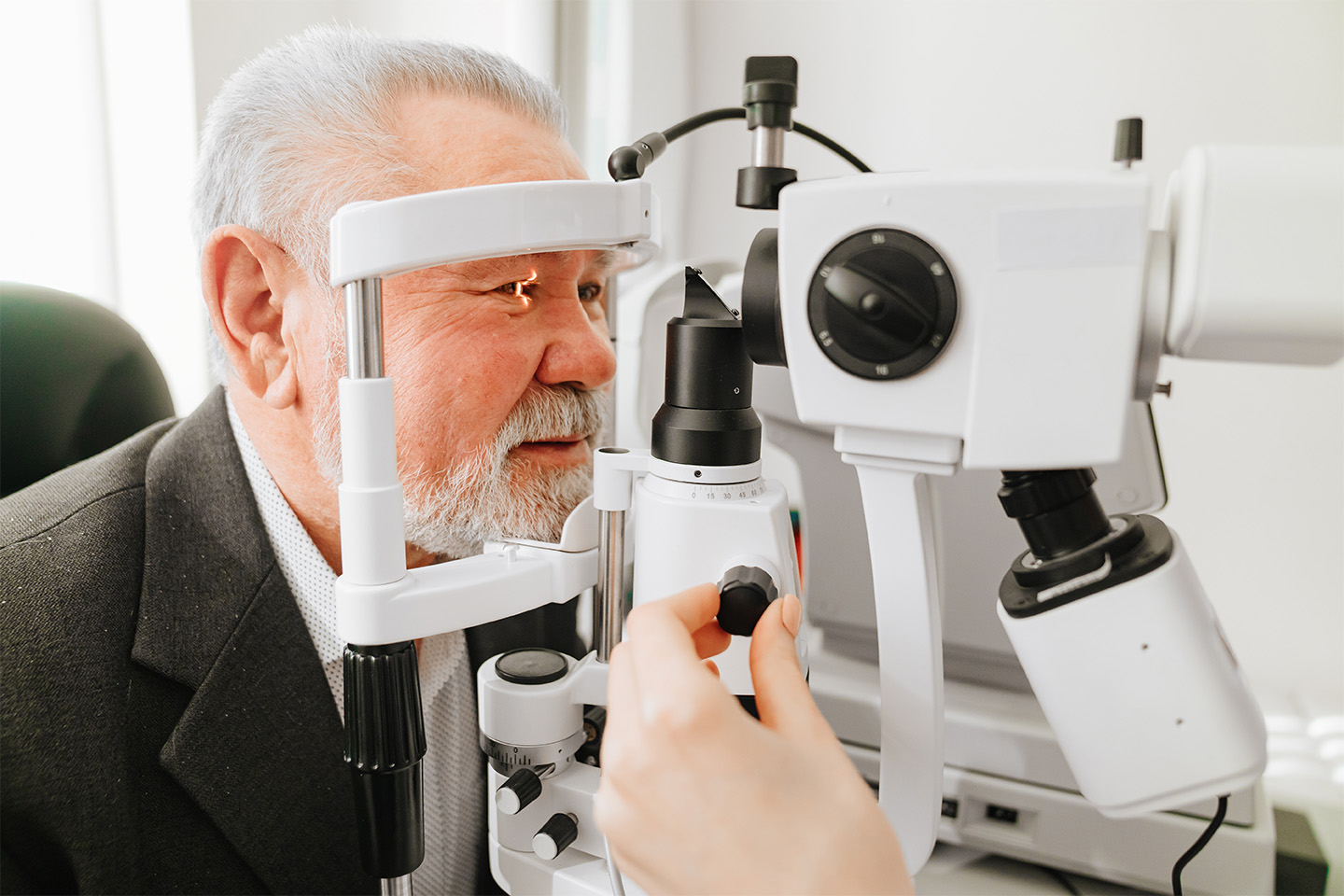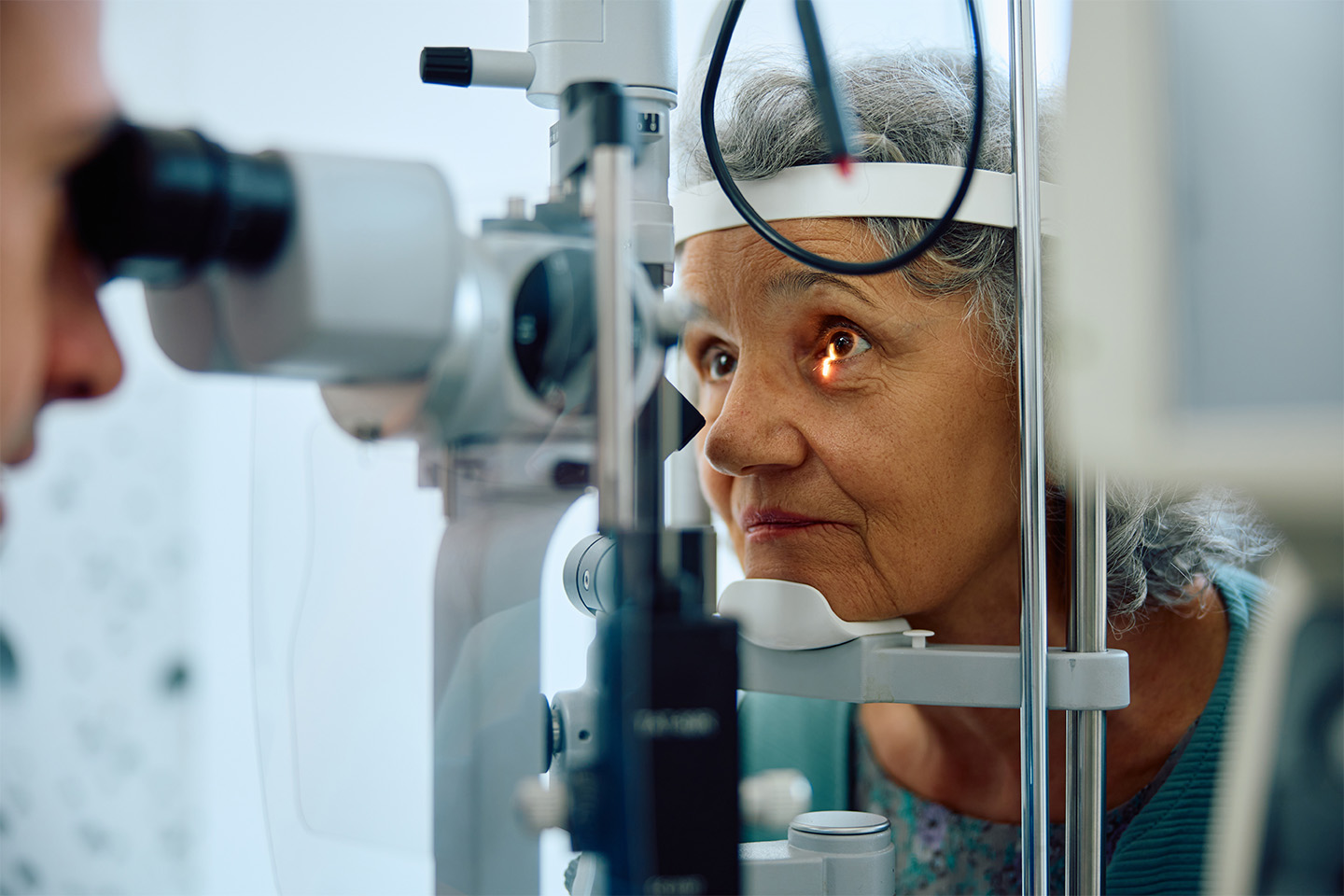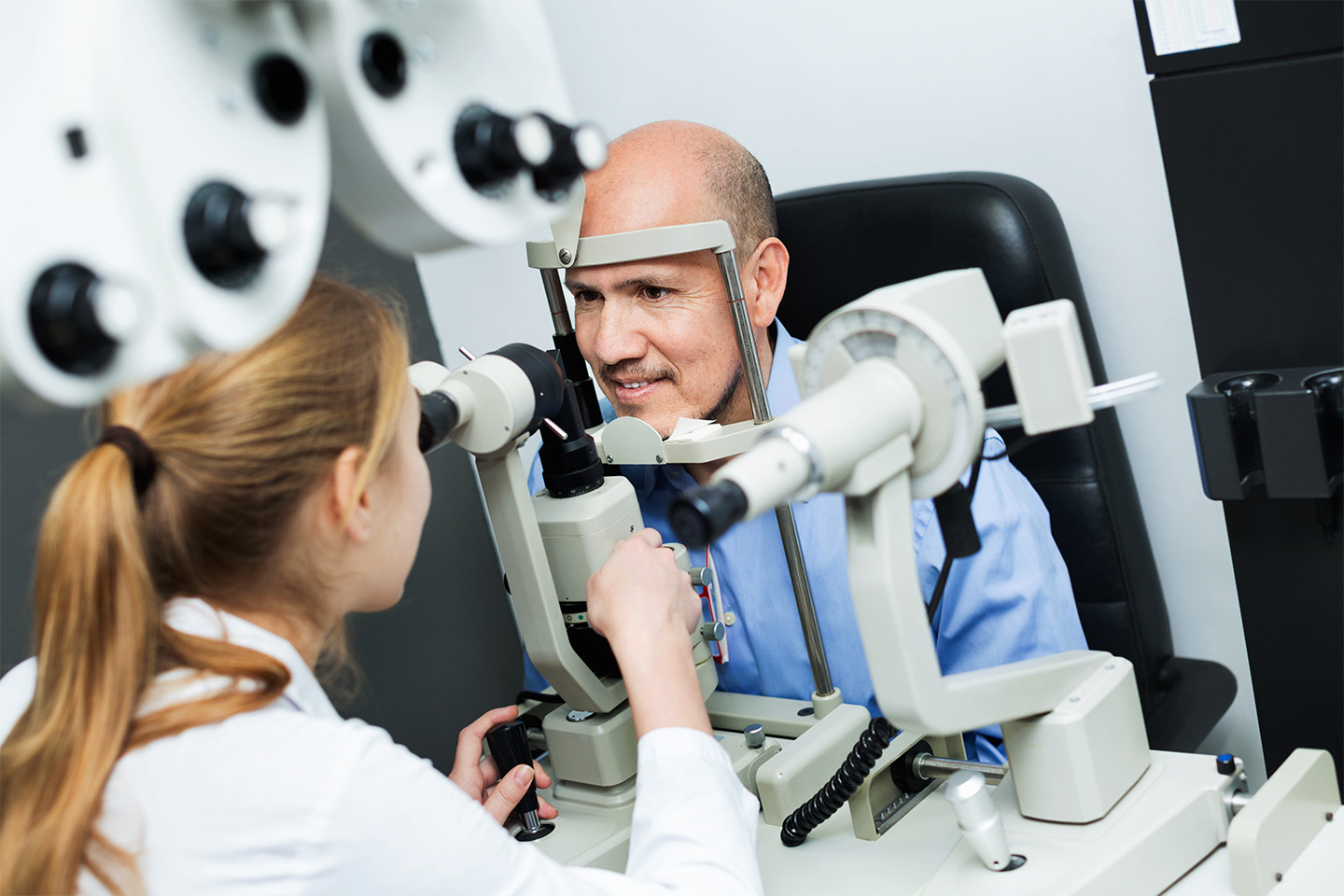Preventing Age-Related Macular Degeneration

Learn the causes and symptoms of age-related macular degeneration so that you can stay ahead of the disease.
Age-related macular degeneration (AMD) is the leading cause of permanent vision loss in people over 60 years old. The condition occurs when the macula — the small central portion of your retina — wears down over time.
Though the disease isn’t curable, it is preventable. Read on to learn the causes, symptoms, and, most importantly, prevention techniques for AMD.
Types of Macular Degeneration
There are two types of macular degeneration: dry and wet. The dry form is more common by far, making up about 90 percent of cases. Both types of AMD can cause severe vision loss, particularly in the central vision.
The dry form of macular degeneration occurs when you have yellow deposits called drusen in the macula. As the drusen get bigger and more numerous, your vision might begin to distort or dim. As the condition worsens, your macula’s light-sensitive cells get thinner, eventually dying. Over time, the disease might lead to a complete loss of central vision.
In the rarer wet form of macular degeneration, blood vessels grow from beneath the macula, leaking fluid and blood into the retina. This distorts your vision and can lead to the development of blind spots or the loss of central vision. If the leaking blood vessels form a scar, then there might be permanent vision loss.
Common symptoms include distorted vision, difficulty reading fine print, difficulty driving, dark, blurry areas at the center of your vision, and, in some cases, different or worse color perception. For both forms of macular degeneration, you may not recognize the symptoms early on. That’s why many people are not diagnosed until the disease either gets worse or affects both eyes.
Causes and Prevention Tips
Macular degeneration can be genetic — and is more common in Caucasians and women — but it is also linked to a number of factors that you can take steps to avoid. Obesity, smoking, high blood pressure or high cholesterol, and a diet high in saturated fat can all contribute to developing the disease.
Some steps you can take to prevent macular degeneration include:
- Don’t smoke.
- Maintain a healthy weight and exercise regularly.
- Take supplements that can slow the development of the disease including lutein, vitamins C and E, copper, zinc, and zeaxanthin.
- Eat fish or take a fish oil supplement.
- Eat lots of dark, leafy green vegetables.
- Eat nuts and fruits every day.
- Limit how many refined carbohydrates you eat.
- Maintain healthy blood pressure and cholesterol.
- Block UV and blue light by wearing sunglasses outdoors and blue light blocking lenses when looking at screens.
Treatment for Age-Related Macular Degeneration
While there is no cure for macular degeneration, it is possible to slow down the development of the disease. Treatment options include taking anti-angiogenesis drugs, which can prevent wet macular degeneration by blocking the creation of blood vessels beneath the macula, as well as both standard laser therapy and photodynamic laser therapy.
If you think you might be suffering from macular degeneration, don’t hesitate to schedule an appointment with us at ICON Eye Care. We can help you navigate your treatment options and prevent vision loss.









